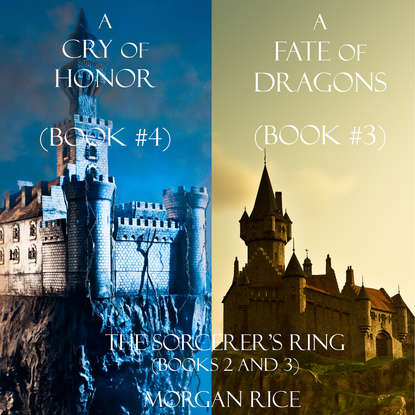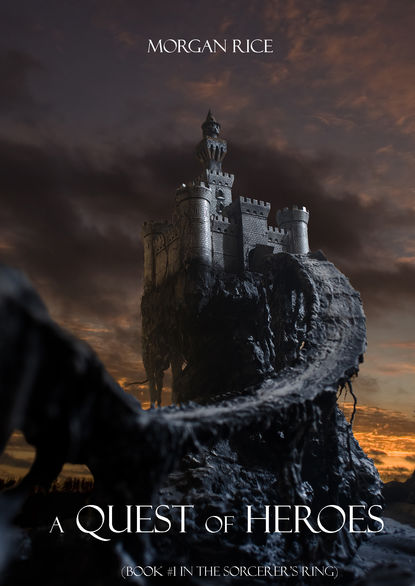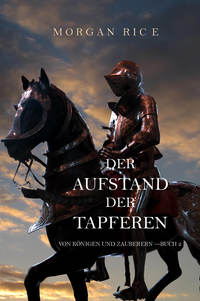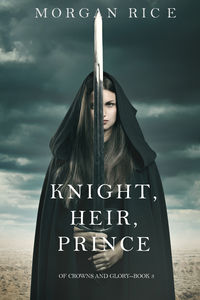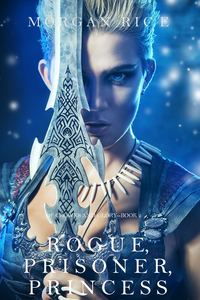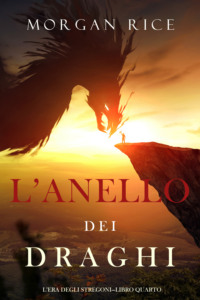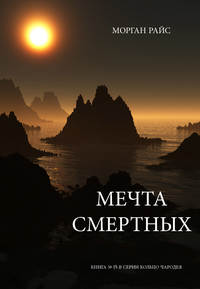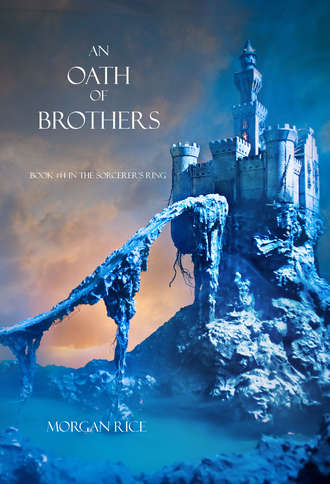
Полная версия
An Oath of Brothers
“My kind of people,” Fulton said, licking his lips as if already tasting the ale.
“And just how are we supposed to get there?” Ario asked.
Godfrey looked down and saw what he was referring to: the street ended in a canal. There was no way to walk there.
Godfrey watched as a small golden vessel pull up at their feet, two Empire men inside, and watched them jump out, tie the boat to a post with a rope, and leave it there as they walked into the city, never looking back. Godfrey spotted the armor on one of them and figured they were officers, and had no need to worry about their boat. They knew, clearly, that no one would ever be so foolish as to dare steal their boat from them.
Godfrey and Merek exchanged a knowing look at the same moment. Great minds, Godfrey realized, thought alike; or at least great minds who had both seen their share of dungeons and back alleys.
Merek stepped forward, removed his dagger, and sliced the thick rope, and one at a time, they all piled into the small golden vessel, which rocked wildly as they did. Godfrey leaned back and with his boot shoved them off from the dock.
They glided down the waterways, rocking, and Merek grabbed the long oar and steered, rowing.
“This is madness,” Ario said, glancing back for the officers. “They might come back.”
Godfrey looked straight ahead and nodded.
“Then we better row faster,” he said.
Chapter Nine
Volusia stood in the midst of the endless desert, its green floor cracked and parched, hard as stone beneath her feet, and she stared straight ahead, facing off with the entourage from Dansk. She stood there proudly, a dozen of her closest advisors behind her, and faced off against two dozen of their men, typical Empire, tall, broad-shouldered, with the glowing yellow skin, the glistening red eyes and two small horns. The only noticeable difference of this people of Dansk was that, over time, they grew their horns out to the side instead of straight up.
Volusia looked out over their shoulders, and saw sitting on the horizon the desert city of Dansk, tall, supremely imposing, rising a hundred feet into the sky, its green walls the color of the desert, made of stone or brick – she could not tell which. The city was shaped in a perfect circle, parapets at the top of the wall, and between them, soldiers stationed every ten feet, facing every station, keeping watch, eyeing every corner of desert. It looked impenetrable.
Dansk lay directly south of Maltolis, halfway between the mad Prince’s city and the southern capital, and it was a stronghold, a pivotal crossroads. Volusia had heard about it many times from her mother, but had never visited herself. She had always said that no one could take the Empire without taking Dansk.
Volusia looked back at their leader, standing before her with his envoy, smug, smirking down at her arrogantly. He looked different than the others, clearly their leader, with an air of confidence, more scars on his face, and with two long braids that descended from his head to his waist.
They had been standing this way in the silence, each waiting for the other to speak, no sound but that of the howling wind in the desert.
Finally, he must have tired of waiting, and he spoke:
“So you wish to enter our city?” he asked her. “You and your men?”
Volusia stared back, proud, confident, and expressionless.
“I do not wish to enter it,” she said. “I wish to take it. I’ve come to offer you terms of surrender.”
He stared back at her blankly for several seconds, as if trying to comprehend her words, then finally his eyes opened wide in surprise. He leaned back and laughed uproariously, and Volusia reddened.
“We?!” he said. “Surrender!?”
He screamed with laughter, as if he had heard the funniest joke in the world. Volusia stared back calmly, and she noted that all the soldiers joining him did not laugh – they did not even smile. They stared back at her seriously.
“You are but a girl,” he finally said, looking amused. “You know nothing of the history of Dansk, of our desert, of our people. If you had, you would know that we have never surrendered. Not once. Not in ten thousand years. Not to anyone. Not even to the armies of Atlow the Great. Not once has Dansk been conquered.”
His smile morphed to a scowl.
“And now you arrive,” he said, “a stupid young girl, appearing from nowhere, with a dozen soldiers, and asking us to surrender? Why shouldn’t I kill you right now, or take you to our dungeons? I think it is you who should be negotiating terms of surrender. If I turn you away, this desert will kill you. Then again, if I take you in, I might kill you.”
Volusia stared back calmly, never flinching.
“I won’t offer you my terms twice,” she said calmly. “Surrender now and I will spare all of your lives.”
He stared back at her, dumbfounded, as if finally realizing she was serious.
“You are deluded, young girl. You have suffered beneath the desert suns for too long.”
She stared back, her eyes darkening.
“I am no young girl,” she replied. “I am the great Volusia of the great city of Volusia. I am the Goddess Volusia. And you, and all beings on earth, are subservient to me.”
He stared at her, his expression shifting, staring back at her as if she were mad.
“You are not Volusia,” he said. “Volusia is older. I have met her myself. It was a very unpleasant experience. And yet I see the resemblance. You are… her daughter. Yes, I can see it now. Why is your mother not coming here to talk to us? Why is she sending you, her daughter?”
“I am Volusia,” she replied. “My mother is dead. I made sure of that.”
He stared back at her, his expression growing serious. For the first time, he seemed unsure.
“You may have been able to murder your mother,” he said. “But you are foolish to threaten us. We are not a defenseless woman and your men of Volusia are far from here. You were foolish to venture so far from your stronghold. Do you think you can take our city with a dozen soldiers?” he asked, releasing and gripping the hilt of the sword as if thinking about killing her.
She smiled slowly.
“I can’t take it with a dozen,” she said. “But I can take it with two hundred thousand.”
Volusia raised one fist high into the air, clutching the Golden Scepter, raising it ever higher, never taking her eyes off of him, and as she did, she watched the face of the Dansk envoy leader look out behind her, and morph to panic and shock. She did not need to turn around to know what he was looking at: her two hundred thousand Maltolisian soldiers, had rounded the hill upon her signal and stretched across the entire horizon. Now the Dansk leader knew the threat facing his city.
His entire envoy bristled, looking terrified and anxious to run back to the safety of their city.
“The Maltolisian army,” their leader said, his voice fearful for the first time. “What are they doing here, with you?”
Volusia smiled back.
“I am a goddess,” she said. “Why wouldn’t they be serving me?”
He looked back at her now with a look of awe and surprise.
“Yet still, you wouldn’t dare attack Dansk,” he said, his voice quivering. “We are under the direct protection of the capital. The Empire army numbers in the millions. If you took our city, they would be obliged to retaliate. You would all be slaughtered in due course. You could not win. Are you that reckless? Or that stupid?”
She held her smile, enjoying his discomfort.
“Maybe a little bit of both,” she said. “Or maybe I’m just itching to test my newfound army and sharpen their skills on you. It is your great misfortune that you lie in the way, between my men and the capital. And nothing, nothing, will lie in my way.”
He glared her, his face turning into a sneer. Yet now, for the first time, she could see real panic in his eyes.
“We came to discuss terms, and we do not accept them. We will prepare for war, if that is what you wish. Just remember: you brought this upon yourself.”
He suddenly kicked his zerta with a shout, and he turned, with the others, and galloped away, their convoy stirring up a cloud of dust.
Volusia casually dismounted from her zerta, reached over and grabbed a short, golden spear as her commander, Soku, reached over and handed it to her.
She held up one hand to the wind, felt the breeze, narrowed one eye, and took aim.
Then she leaned forward and threw it.
Volusia watched as the spear went flying in a high arc through the air, a good fifty yards, then finally she heard a great cry, and the satisfying thump of spear hitting flesh. She watched in delight as it lodged in the leader’s back. He cried out, falling from his zerta, and landed on the desert floor, tumbling.
His entourage stopped and looked down, horrified. They sat there on their zertas, as if debating whether to stop and get him. They looked back and saw all of Volusia’s men on the horizon, marching now, and clearly they thought better of it. They turned and galloped away, heading to the city gates, abandoning their leader on the desert floor.
Volusia rode with her entourage until she reached the dying leader, and dismounted by his side. In the distance she heard iron slam, and she noticed his entourage entering Dansk, a huge iron portcullis slamming down behind them, and the enormous iron double doors of the city sealed shut after them, creating an iron fortress.
Volusia looked down at the dying leader, who turned on his back and looked up at her in anguish and shock.
“You cannot wound a man who comes to talk terms,” he said, outraged. “It goes against every law of the Empire! Never has such a thing been done before!”
“I did not intend to wound you,” she said, kneeling down beside him, reaching out and touching the shaft of the spear. She shoved the spear deep into his heart, not letting go until finally he stopped squirming and breathed his last breath.
She smiled wide.
“I intended to kill you.”
Chapter Ten
Thor stood at the bow of the small sailing vessel, his brothers standing behind him, his heart pounding with anticipation as the current carried them straight toward the small island before them. Thor looked up, studied its cliffs in wonder; he’d never seen anything like it. The walls were perfectly smooth, a white, solid granite, sparkling beneath the two suns, and they rose straight up, hundreds of feet high. The island itself was shaped in a circle, its base surrounded by boulders, and it was hard to think amidst the incessant crashing of the waves. It looked impregnable, impossible for any army to scale.
Thor held a hand up to his eyes and squinted into the sun. The cliffs seemed to stop at some point, to cap off in a plateau hundreds of feet high. Whoever lived up there, at the top, would live safely forever, Thor realized. Assuming anyone lived up there at all.
At the very top, hovering over the island like a halo, was a ring of clouds, soft pink and purple, blanketing it from the harsh rays of the sun, as if this place were crowned by God himself. A gentle breeze stirred here, the air pleasant and mild. Thor could sense even from here that there was something special about this place. It felt magical. He had not felt this way since he had reached the land of his mother’s castle.
All the others looked up, too, expressions of wonder across their faces.
“Who do you suppose lives here?” O’Connor asked aloud the question on all of their minds.
“Who – or what?” Reece asked.
“Maybe no one,” Indra said.
“Maybe we should sail on,” O’Connor said.
“And skip the invitation?” Matus asked. “I see seven ropes, and there are seven of us.”
Thor examined the cliffs and as he looked closely, he saw seven golden ropes dangling from the top down to the shores, glistening in the sun. He wondered.
“Maybe someone’s expecting us,” Elden said.
“Or tempting us,” Indra said.
“But who?” Reece asked.
Thor looked up at the very top, all of these same thoughts racing through his mind. He wondered who could know they were coming. Were they being watched somehow?
They all stood in the boat silently, bobbing in the water, as the current brought them ever closer.
“The real question,” Thor asked aloud, finally breaking the silence, “is if they are friendly – or if this is a trap?”
“Does it make any difference?” Matus asked, coming up beside him.
Thor shook his head.
“No,” he said, tightening his grip on the hilt of his sword. “We will visit it either way. If friend, we will embrace them; if foe, we will kill them.”
The currents picked up, and long, rolling waves carried their boat all the way to the narrow shore of black sand that surrounded the place. Their boat washed gently up, lodging on it, and as it did, everyone all jumped out at once.
Thor gripped the hilt of his sword, on edge, and looked about in every direction. There was no movement on the beach, nothing but the crashing of the waves.
Thor walked up to the base of the cliffs, laid his palm on them, felt how smooth they were, felt the heat and energy radiating off of them. He examined the ropes which rose straight up the cliff, sheathing his sword and grabbing hold of one.
He tugged on it. It didn’t give.
One by one the others joined him, each grabbing a rope and tugging on it.
“Will it hold?” O’Connor wondered aloud, looking straight up.
They all looked up, clearly wondering the same thing.
“There is only one way to find out,” Thor said.
Thor grabbed the rope with both hands, jumped up, and began his ascent. All around him the others did the same, all of them scaling the cliffs like mountain goats.
Thor climbed and climbed, his muscles aching, burning under the sun. Sweat poured down his neck, stung his eyes, and all of his limbs shook.
And yet at the same time, there was something magical about these ropes, some energy that supported him – and the others – and made him climb faster than he’d ever had, as if the ropes were pulling him up.
Much sooner than he’d imagined possible, Thor found himself reaching the top; he reached up and was surprised to find himself grabbing onto grass and soil. He pulled himself up, rolling onto his side, onto soft grass, exhausted, breathing hard, limbs aching. All around him, he saw the others arriving, too. They had made it. Something had wanted them up there. Thor did not know if that was cause for reassurance or for worry.
Thor took a knee and drew his sword, immediately on edge, not knowing what to expect up here. All around him his brothers did the same, all of them rising to their feet and instinctually getting into a semicircular formation, guarding each other’s backs.
Yet as Thor stood there, looking out, he was shocked by what he saw. He had expected to see an enemy facing him, had expected to see a rocky and barren and desolate place.
Instead, he saw no one there to welcome them. And instead of rock, he saw the most beautiful place he had ever laid eyes upon: there, spread out before him, were rolling green hills, lush with flowers, foliage, and fruits, sparkling in the morning sun. The temperature up here was perfect, caressed by gentle ocean breezes. There were fruit orchards, lush vineyards, places of such bounty and beauty that it immediately caused all of his tension to fall away. He sheathed his sword, as the others relaxed, too, all of them gazing out as this place of perfection. For the first time since he’d set sail from the land of the dead, Thor felt as if he could truly relax and let down his guard. This was a place he was in no rush to leave.
Thor was baffled. How could such a gorgeous and temperate place exist in the midst of an endless and unforgiving ocean? Thor looked about and saw a gentle mist hanging over everything, looked up and saw, high above, the ring of gentle purple clouds covering the place, sheltering it, yet also allowing the sun to streak through here and there – and he knew in every ounce of his body that this place was magical. It was a place of such physical beauty that it put even the bounty of the Ring to shame.
Thor was surprised as he heard what sounded like a distant screech; at first he thought it was just his mind playing tricks on him. But then he felt a chill as he heard it again.
He raised his hand to his eyes and looked up, studying the skies. He could have sworn it sounded like the cry of a dragon – and yet he knew that was not possible. The last of the dragons, he knew, had died with Ralibar and Mycoples. He had witnessed it himself, that fateful moment of their deaths still hanging over him like a dagger in his heart. There wasn’t a day that went by when he did not think of his good friend Mycoples, when he did not wish she was back at his side.
Конец ознакомительного фрагмента.
Текст предоставлен ООО «ЛитРес».
Прочитайте эту книгу целиком, купив полную легальную версию на ЛитРес.
Безопасно оплатить книгу можно банковской картой Visa, MasterCard, Maestro, со счета мобильного телефона, с платежного терминала, в салоне МТС или Связной, через PayPal, WebMoney, Яндекс.Деньги, QIWI Кошелек, бонусными картами или другим удобным Вам способом.


